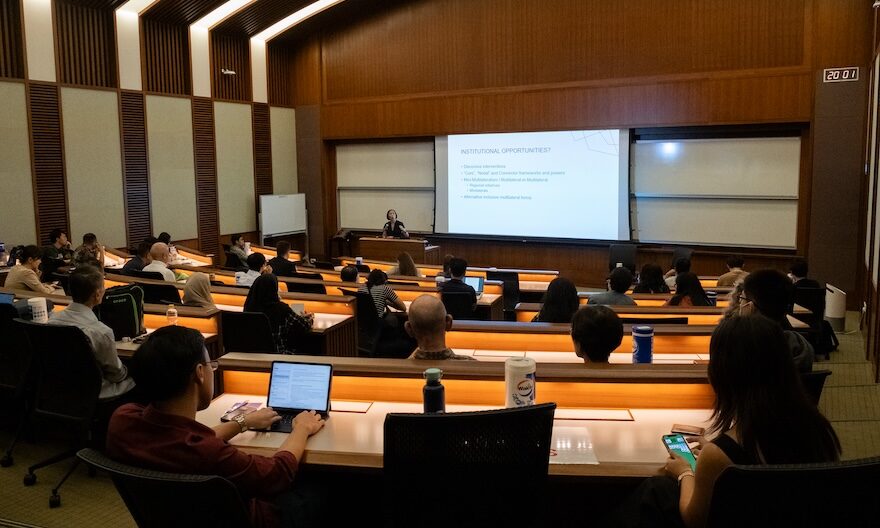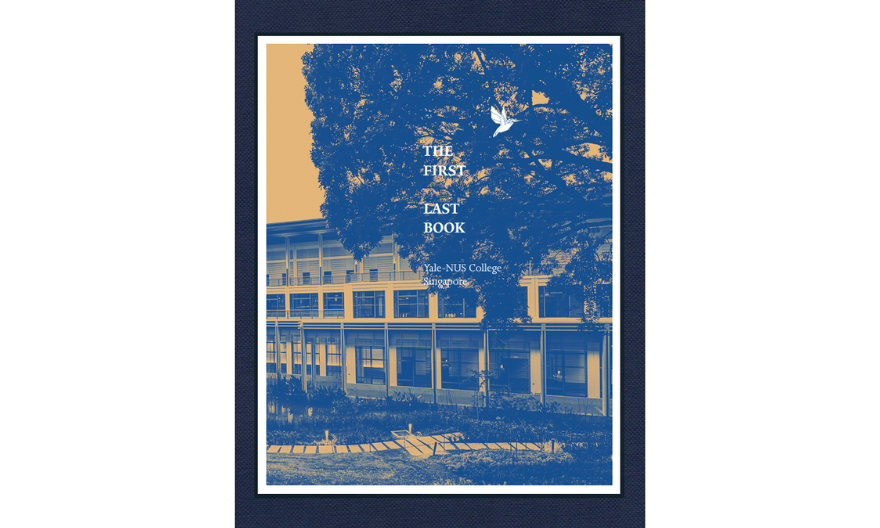Renowned Shakespeare scholar Stephen Greenblatt advocates for the study of the humanities

On 10 August 2017, renowned Shakespeare scholar Professor Stephen Greenblatt presented two lectures at Yale-NUS College. The first, entitled ‘Age is Unnecessary: Shakespeare and the War between Old and Young’, was a public lecture that was part of the President’s Speaker Series at Yale-NUS. The other, which was titled ‘Human Nature, Radical Innovation, and the Value of Humanities’, was a closed-door lecture delivered to first-year students on campus.
A literary historian prolific in the study of Shakespeare and literary theory, Professor Greenblatt is the John Cogan Professor of the Humanities at Harvard University and was awarded the Pulitzer Prize in 2012 for his book The Swerve: How the World Became Modern.
In his public lecture, ‘Age is Unnecessary: Shakespeare and the War between Old and Young’, Professor Greenblatt highlighted that the study of the old works of literature and art remained relevant and that the value in studying the humanities could be both personal and scholarly. Certain works, such as Shakespeare’s, when understood in their historical contexts, could resonate with personal experience across time.
The core of his lecture was a close reading of passages from William Shakespeare’s King Lear that depict fraught family relationships between old and young. He said, “There is a clear evolutionary link between the end of reproduction and senescence. All that matters is to enhance the likelihood of survival through the reproduction period, which extends beyond the birth of the youngest child to the moment when that youngest child is self-sufficient. At that moment, the post-reproductive individual who has transmitted the genes and helped the offspring achieve self-sufficiency has no further purpose and can, in effect, be discarded. In the memorable words of King Lear, ‘Age is unnecessary’”.
According to Professor Greenblatt, he was motivated to return to King Lear because of his own relationship with his ageing parents. Yejin Park (Class of 2019) was inspired by his story and shared, “Academia does not have to be disconnected from your life, from what each individual cares about, or from what each individual might face in the future”.
Professor Greenblatt also looked closely at the tumultuous examples of parent-child relationships in the play and compared them to biological ageing and the human desire to leave behind a legacy. Professor Greenblatt posited the reality of eventual death and shared, “With this destiny comes the impulse, both the possibility and also the compulsion to leave something of oneself behind”.
Although Professor Greenblatt’s point primarily concerned generational reproduction, Roshan Singh (Class of 2018) drew a connection and shared, “On behalf of my fellow seniors, we do feel like we are the unnecessary agent. I question to what extent we can give back to the younger generations of students.” As a senior, Roshan is acutely aware of the opportunity that students have to leave their mark at Yale-NUS. With the influx of new first year students and start of the new academic semester, history and legacy took on new meaning for students.
In his closing remarks at the public lecture, Professor Greenblatt connected both presentations and concluded, “In literature, life history is the platform for human experience. In biology, human experience is an s of life history. At best, part of a ruse selected by nature to facilitate the transmission of genes. At worst, it is an irrelevance. At the beginning of King Lear, a very old man recognises that his life history has reached its end, making the final and definitive parental investment his giving up everything. But what lies just ahead is what most matters to Shakespeare—the need to tell his story.”
In his other closed-door lecture for Yale-NUS students, Professor Greenblatt discussed the importance of studying the arts and humanities as part of the undergraduate curriculum. Similar to his public lecture, he incorporated evolutionary science in his study of the arts and humanities and contrasted the linear progress of scientific fields, such as medicine.
In the question and answer segment of this lecture, the discussion also covered topics such as the politics of canonised art and literature. Tan Xue Yi (Class of 2021) shared, “What I felt was most relatable was when Professor Greenblatt raised the example of Shakespeare’s Hamlet in his presentation because I had studied it before. In spite of the knowledge that I had of the play, the lecture provided a new perspective that I had not heard of before. Suddenly, I was exposed to interesting ideas which opened up a new window of possibilities”.




